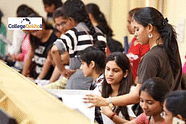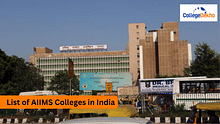Studying MBBS abroad sounds exciting but comes with real challenges from language barriers to high hidden costs and FMGE pressure. Read before you decide.

Every year, thousands of Indian students travel abroad to study MBBS because there are limited seats in Indian medical colleges and the competition is very high in NEET. Students aspiring to be doctors have preferred countries like Russia, China, Ukraine, Kazakhstan, and the Philippines. While studying medicine abroad presents opportunities, it comes with challenges that students have to overcome. A prior understanding of these obstacles helps in gearing the students up mentally, financially, and academically for the long journey.
Challenges Indian Students Face While Pursuing MBBS Abroad
Studying medicine in a different country presents a multitude of challenges outside the realm of academics. Everything from culture shock to financial strains is a reality for students, as the conditions vary greatly when compared to studying in India.
Language Barriers
The language barrier is the first immediate challenge that students come across when pursuing studies abroad. Although universities have English instruction, it means that students would still be required to speak the local language in shopping, medical emergencies, or day-to-day communication. This problem continues to follow students even during clinical rotations when such students are required to interact with local patients who speak no English, which denies them practical learning and even confidence.
Cultural Adaptation Issues
Indian students accustomed to joint families and constant support feel isolated in individualistic foreign cultures. The absence of familiar festivals, home-cooked food, and family gatherings brings about a deep sense of emotional stress. For some students, adapting to the social norms, living independently, and coping with homesickness while striving to keep up the academic performance becomes heavier than they can bear.
Extreme Weather Conditions
Countries like Russia, Ukraine, and Kazakhstan have lengthy winters, during which the temperature often drops to minus 20-30 degrees. Indian students have to live in extreme cold conditions, with very limited access to sunlight for about six months. This results in vitamin D deficiency, seasonal affective disorder, and other health issues directly affecting studying and the overall well-being of students.
Food and Dietary Problems
Most foreign countries have very limited vegetarian options. Indian students often find it tough to adjust to the local cuisine, which is very different from the Indian one. Most survive on bread and pasta as well as self-cooked meals; this often becomes dull and gets them nutritionally deprived and affecting health and energy levels.
Financial Burden and Hidden Costs
Although tuition fees appear reasonable initially, hidden costs go on to mount significantly. Accommodation, food, travel, visa renewals, health insurance, currency fluctuations- there arises unexpected financial pressure. Students often encounter the just-off depreciation of the value of the rupee against foreign currencies, with living expenditures therefore becoming unpredictable and proving to be a burden on middle-class families.
Safety and Security Concerns
International students sometimes have to face issues like discrimination or even racism, and sometimes safety issues in foreign nations. The incidents of violence against Indian students in countries like Ukraine and Russia really raised concerns. Female students are especially worried about safety issues concerning traveling alone or working late at night at hospitals during clinical training.
Recognition and FMGE/NExT Challenges
After completing MBBS abroad, students must clear the Foreign Medical Graduate Examination (FMGE), now being replaced by NExT, to practice in India. The pass rate for the FMGE is usually around 20%, meaning the majority of students are failing the exam several times. The exam pattern is very different from what they have studied abroad, as they require huge additional preparations, and uncertainty looms over their medical care
Quality of Education Concerns
Not all overseas medical colleges are very well recognized for their scholastic excellence. Some such institutes try merely to enroll foreign students for revenue generation and not for the quality of education. The absence of proper clinical exposure, old equipment, insufficient faculty, and overcrowded classrooms compromises education quality such that the students are not well prepared for medical practice.
Visa and Legal Complications
The whole process of acquiring a student visa might even involve complicated documents and renewing it like thrice or more while still complying with some stringent requirements. Any lapse in the time of renewing the visa could potentially be questioned and made costlier, even leading to deportation. Students sometimes find themselves in an uncertain situation when their governments enter into political issues over one another and visa policies change.
Limited Clinical Exposure
Clinical training in many foreign universities may not be on par with what Indian medical colleges can provide. A lot of the time, they see patients but don't treat them for language and institutional reasons. This lack of practical exposure instills a sense of inferiority and incompetence once they go back to India to practice.
Social Isolation and Mental Health
Having been separated from the family support structures, academically pressured oneself, discriminated against, and financially burdened singly produces anxiety and depression. Limited access to mental health resources, coupled with language barriers, means an end to seeking help for them. Most of them suffer in silence, tightrope walking through studies and personal development.
Difficulty in Internship Placement
It is not an easy task to get internships in India after MBBS abroad. Most hospitals in India give priority to students of Indian medical colleges. Students who have graduated from medical colleges outside India wait till the results of their applications come out, only to face rejection as internship applicants and are then left to choose between a position in one of the farthest corners of the country and some of the most forgotten hospitals for their consumers and the students themselves, thereby impacting their future career growth and specialization.
Currency Fluctuation Impact
Exchange rate fluctuations have tremendous effects on the finances of a number of students. With the depreciation of the rupee against the dollar, euro, and other currencies, the expenses for tuition fees, accommodation, and daily expenses shoot up substantially. Because families struggle to arrange additional funds midway through the course, some students even resort to educational loans, and others discontinue their education altogether.
Academic Pressure and Different Education Systems
The teaching methodology and examination patterns in foreign universities differ from the Indian education system. Students suffer in adjusting to new learning styles, continuous assessments, and practical-based evaluations. Poor performance and backlogs usually follow the academic pressure, plus adjustment trouble.
Employment Uncertainty
While studying medicine in a foreign land, an Indian student somehow entertains the idea that Indian employment is his birthright. Indian hospitals and clinics mostly favor candidates from recognized Indian medical schools. Foreign medical graduates find it tough to build a network of references, go through biased interviews at times, and end up with lower salaries as compared to their Indian counterparts.
Studying MBBS abroad offers more than just academic challenges; there are many obstacles that students have to encounter in terms of language capability, cultural shock, financial pressure, and more when trying to find employment. While many learned to face and take on wonderful heartthrobs in medicine, prospective students should assess all these challenges realistically to make a good decision.
MBBS in India vs MBBS Abroad - Which is Better? Compare real challenges, costs, exposure, and long-term career outcomes before choosing your path.
Are you feeling lost and unsure about what career path to take after completing 12th standard?
Say goodbye to confusion and hello to a bright future!

Was this article helpful?




















Similar Articles
List of Documents Required for NEET 2026 Application Form: Size, Format, Specifications
List of AIIMS Colleges in India 2026: Ranking, Courses, Fees and Seat Intake
What is a Good Score in FMGE 2025?
Last 30 Days Preparation Plan for FMGE 2025: Dos and Don'ts
Expected NEET SS 2025 Cutoff Scores for ENT
Expected NEET SS 2025 Cutoff Scores for Microbiology